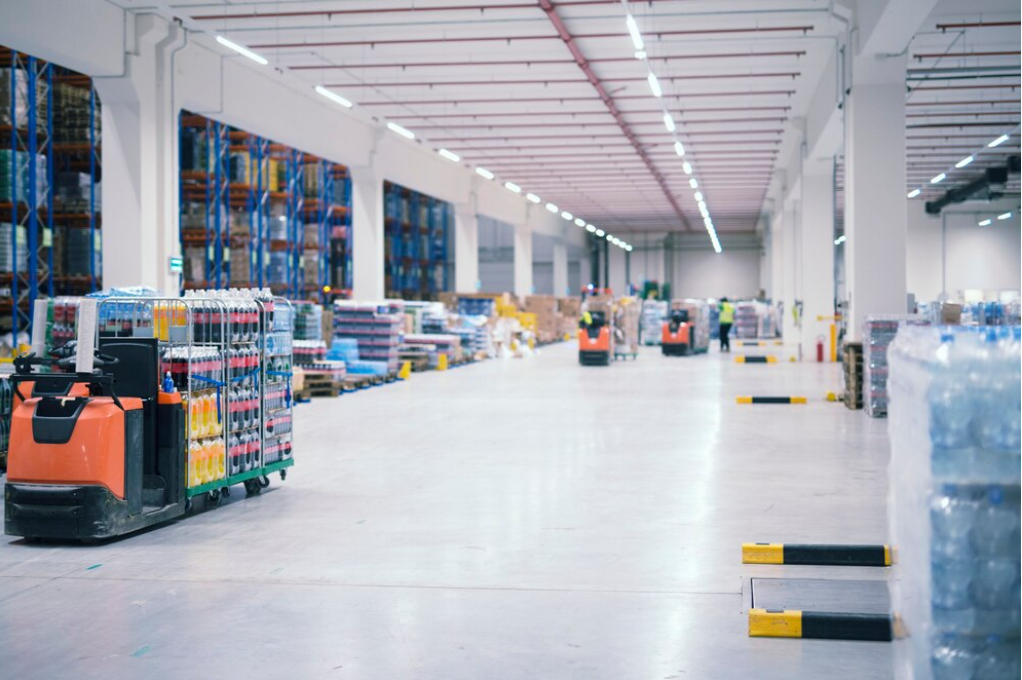🏭 Introduction: Is Your Factory Legally Compliant?
If you’re running a factory in Gujarat, there’s more to managing operations than meeting production deadlines. One critical component you can’t afford to overlook is industrial safety.
But did you know that under the Gujarat Factories Rules, appointing a Safety Officer isn’t just good practice—it’s a statutory requirement?
In this blog, we’ll decode:
- Why a Safety Officer is legally required
- What the Gujarat Factories Rules say about it
- Key duties and responsibilities
- Benefits of having a dedicated safety expert on your team
Let’s dive into the legal and practical side of this essential role.
📜 What the Law Says: Gujarat Factories Rules and Safety Officers
🧾 The Statutory Provision
According to Rule 68-U of the Gujarat Factories Rules, 1963, read under Section 40-B of the Factories Act, 1948:
“Every factory employing 1,000 or more workers, or any factory engaged in hazardous processes and employing 500 or more workers, shall appoint a qualified Safety Officer.”
In simple terms:
✅ More than 1,000 workers = Mandatory Safety Officer
✅ Hazardous processes + 500+ workers = Mandatory Safety Officer
📌 Additional Notes:
- The number of safety officers may be increased based on the nature of work and factory size.
- The appointment must be approved by the Chief Inspector of Factories.
- The officer must meet minimum qualifications and undergo specified training.
🎓 Qualifications of a Safety Officer
To be eligible as a safety officer under the Gujarat Factories Rules, the candidate must typically have:
- A degree in Engineering or Science from a recognized institution.
- A diploma in Industrial Safety recognized by the government.
- Practical experience in industrial operations and safety management.
In addition, the candidate must be:
- Medically fit
- Conversant with the Gujarati language (preferable for communication)
🔍 Did you know? Some organizations also require NEBOSH or IOSH certifications for higher compliance standards.
🧑🏭 Core Roles and Responsibilities of a Safety Officer
The Safety Officer is not just a formality—they are crucial to the factory’s ecosystem. Here’s what they actually do:
1. Ensure Legal Compliance
Safety Officers ensure that all operations comply with the Factories Act, Environmental Laws, and Safety Regulations. They:
- Conduct regular audits
- Maintain updated safety manuals
- Liaise with government inspectors
✅ Benefit: Prevent legal penalties and shutdowns.
2. Develop & Implement Safety Programs
They design and enforce occupational health and safety programs, including:
- Fire safety drills
- Electrical safety protocols
- Personal Protective Equipment (PPE) policies
✅ Benefit: Keeps your team trained and ready for emergencies.
3. Hazard Identification and Risk Assessment (HIRA)
One of the most critical duties is recognizing risks before they become accidents:
- Inspect machinery, chemicals, and processes
- Conduct Job Safety Analysis (JSA)
- Recommend corrective actions
✅ Benefit: Minimizes incidents, maximizes productivity.
4. Incident Investigation and Reporting
Accidents can happen. When they do, the Safety Officer:
- Investigates root causes
- Files reports as per legal norms
- Recommends preventive measures
✅ Benefit: Ensures accountability and reduces repeat mishaps.
5. Training & Awareness Programs
Safety Officers conduct regular sessions to educate workers on:
- Fire extinguisher use
- Lockout-tagout procedures
- Chemical handling
- Emergency evacuation
✅ Benefit: Empowers employees with knowledge, reducing human error.
6. Liaison with Government and External Agencies
They act as the bridge between the factory and:
- Directorate of Industrial Safety and Health (DISH)
- Pollution Control Board
- Labor Welfare Department
✅ Benefit: Helps manage compliance and improves factory reputation.
7. Record Maintenance and Documentation
Proper documentation is a legal necessity. Safety Officers maintain:
- Accident registers
- Medical records
- Training logs
- Safety inspection reports
✅ Benefit: Smoothens compliance checks and internal audits.
⚙️ Key Skills Every Safety Officer Should Have
Beyond qualifications, an effective safety officer needs:
- 👁️ Attention to Detail – To identify hidden hazards
- 🧠 Analytical Thinking – For root cause analysis
- 🗣️ Communication Skills – To convey safety protocols clearly
- 🧘 Calm Demeanor – Especially during crises
- 📋 Organizational Ability – For effective documentation
“A great Safety Officer doesn’t just check boxes—they build a culture of safety.”
🏆 Benefits of Appointing a Safety Officer
You may wonder—is it worth the investment? Here’s why a safety officer is more than just a legal requirement:
| Benefit | Description |
|---|---|
| ✔️ Reduced Downtime | Fewer accidents = fewer production halts |
| ✔️ Higher Morale | Workers feel valued and protected |
| ✔️ Cost Savings | Avoid costly legal battles and compensation |
| ✔️ Better Reputation | Enhances brand image among clients and auditors |
| ✔️ Long-Term Growth | Safe environments attract skilled talent |
📉 Consequences of Non-Compliance
Neglecting to appoint a qualified Safety Officer can lead to:
- ⚠️ Heavy fines under the Factories Act
- ⚠️ Closure notices from the Factory Inspector
- ⚠️ Legal proceedings in case of workplace fatalities
- ⚠️ Loss of business license for repeat violations
🚨 Don’t take risks with lives or licenses.
✅ Step-by-Step Guide to Appointing a Safety Officer in Gujarat
- Assess factory size and nature of work
- Check the eligibility of potential candidates
- Get approval from the Chief Inspector of Factories
- Provide initial training and orientation
- Define roles and responsibilities clearly
- Set up reporting and evaluation mechanisms
🛠️ Tip: Include the Safety Officer in monthly operations meetings for seamless coordination.
🧭 Real-World Example: A Gujarat Factory That Got It Right
A large textile unit in Ahmedabad with over 1,200 employees appointed a certified Safety Officer in 2022. Over the next year, they:
- Reduced accident rates by 40%
- Passed all government inspections without penalties
- Introduced a robust emergency evacuation plan
- Improved their ISO 45001 (Occupational Health & Safety) audit score
Moral of the story? Compliance isn’t a burden—it’s a business advantage.
🤝 Final Thoughts: Building a Culture of Safety Starts at the Top
The statutory requirement for a safety officer under the Gujarat Factories Rule is not just a checkbox. It’s a strategic necessity for legal compliance, operational efficiency, and above all, human safety.
As a factory owner or manager, you have a choice:
- View safety as a cost…
- …or see it as an investment in people and productivity.
Choose the latter—and your business will thank you.
📌 Quick Recap: Statutory Facts
| Criteria | Requirement |
|---|---|
| 1,000+ employees | Safety Officer mandatory |
| 500+ in hazardous processes | Safety Officer mandatory |
| Rule Applicable | Rule 68-U of Gujarat Factories Rules, 1963 |
| Qualification | Engineering/Science degree + Industrial Safety diploma |
| Approval Required | Yes, from Chief Inspector of Factories |
💬 Have a Question?
Drop your queries in the comments below! Whether you’re a factory owner, manager, or aspiring safety officer—we’re here to help you build a safer tomorrow.
🔗 Related Reads:
- Factories Act 1948 – Full Breakdown
- Top 10 Workplace Safety Tips Every Factory Must Follow
- How to Conduct a Risk Assessment in Your Factory
“Start Your Website Journey Today – Exclusive Hostinger Discounts!”

Turn Any Idea into Viral,
Jaw-Dropping AI Videos in Seconds!










